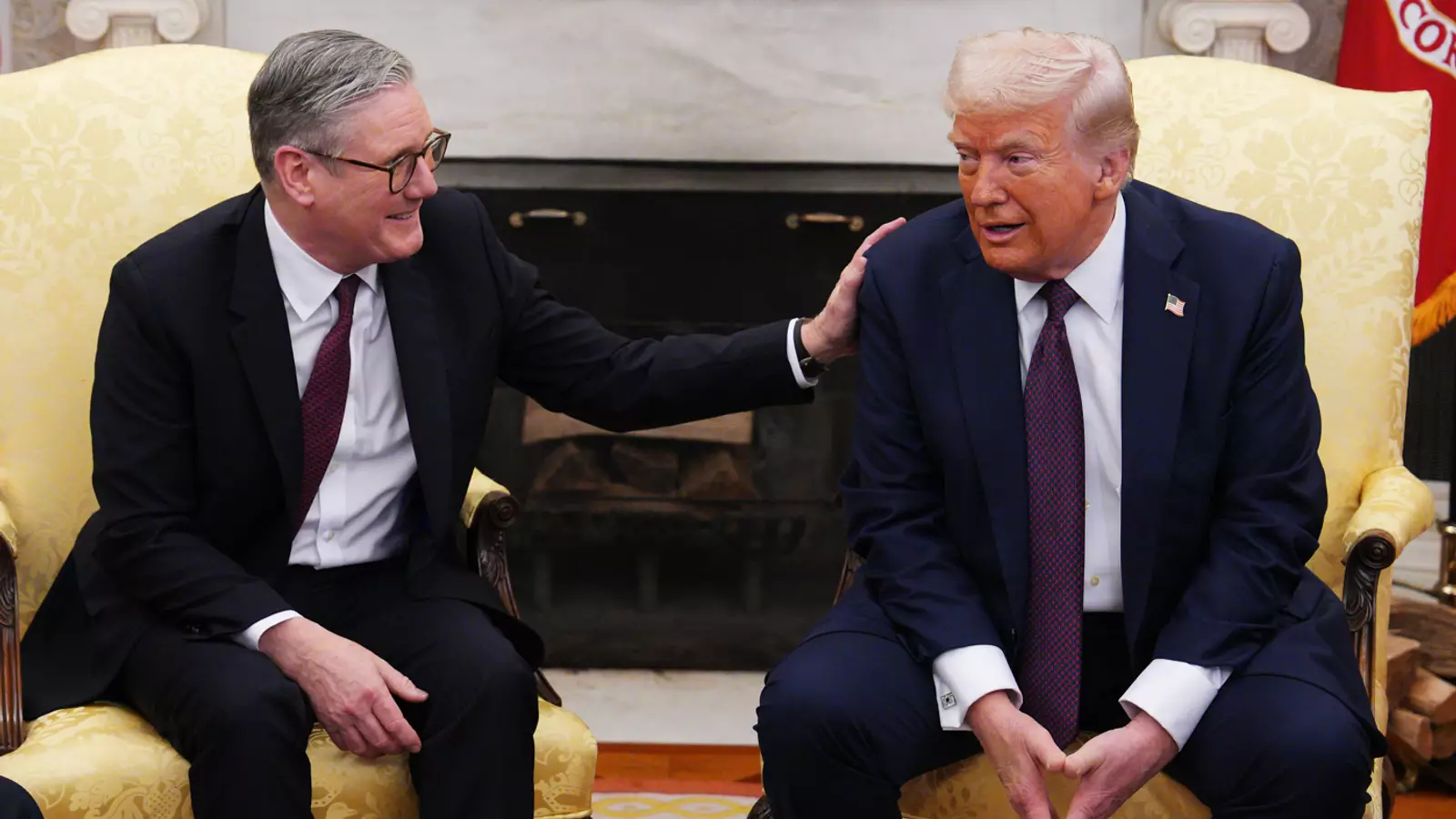The current landscape of US-UK trade relations is fraught with tension and uncertainty. As Sir Keir Starmer, the UK Prime Minister, articulates the advances made in trade negotiations, an ominous shadow looms: the impending imposition of tariffs by Donald Trump. This situation is not just a mere economic issue; it stands as a stark representation of how individual political agendas can shape international relations. The delicate fabric of trade that binds the US and UK appears poised to unravel, leaving both nations grappling with the fallout of a trade war that nobody desires but seems increasingly inevitable.
Starmer’s insistence on a “calm approach” might resonate with those advocating for diplomacy over impulsivity, yet it raises questions about whether this approach is sufficient in the face of impending tariffs. When it’s suggested that all options remain on the table, in the context of the UK’s national interest, it feels like a prelude to retaliatory measures that could spiral quickly out of control. The prospect of tariffs evokes immediate concerns about the economic ramifications, not just for traders and businesses, but for the average consumer who may ultimately bear the cost in the form of higher prices. Moreover, such talk of a “knee-jerk” response feels shallower when contrasted with the alarming implications of a potential trade war.
Trump’s Tariff Sword of Damocles
Donald Trump’s approach to international trade appears as a double-edged sword. While he masks the act of imposing tariffs behind the banner of “liberation,” the reality differs starkly from rhetoric. Aimed ostensibly at correcting perceived trade imbalances, these tariffs represent a form of economic aggression that risks provoking retaliation and deepening trade divisions. The notion of “liberation day” only serves to further highlight the irony; meanwhile, actual workers on both sides of the Atlantic may soon find their livelihoods in jeopardy.
Trump’s promise to alter trade practices that have “ripped off our country for decades” can be interpreted as a populist strategy riding the wave of a discontented electorate. However, the practical implementation of such sweeping tariff changes remains dangerously vague. Every indication suggests that if allowed to proceed unchecked, these tariffs could spark countervailing duties from the UK, forcing a tit-for-tat scenario that could see both nations suffering long-term economic setbacks. For anyone witnessing the developments in global markets amidst this looming threat, it is evident that investor confidence hangs by a thread.
Unintended Consequences: A Threat to the UK Economy
The grim projections from the Office for Budget Responsibility (OBR) are sobering—an anticipated contraction of the UK economy by 1% due to proposed tariffs points to the severity of the crisis. Such a decline foretells not merely an economic setback, but the potential erosion of public services that rely on tax revenue, further burdening citizens already grappling with the cost-of-living crisis. The intertwining of trade policy and national welfare cannot be overstated; it is not just numbers and graphs but the very fabric of society that is at stake.
Inflationary pressures may rise in the wake of tariff-induced price hikes, exacerbating financial strain on households. The disconnect between high-level political negotiation and ground-level economic realities cannot be overlooked. Retaliatory tariffs must be considered not as a mere bargaining chip, but as a potential reality that could exacerbate an already precarious situation, with the possibility of a downward economic spiral haunting policymakers.
Seeking Calm Amidst the Storm
The calls for a “calm-headed” approach from figures like Jonathan Reynolds reflect a sincere desire to navigate through treacherous waters without succumbing to panic-induced measures. Yet, there’s a distinct difference between maintaining the appearance of composure and effectively steering the ship through stormy seas. This is where center-wing liberalism must assert itself—not simply advocating for dialogue but actively pursuing constructive engagement that addresses the underlying fears and realities faced by those affected by trade policies.
The crucial question arises: can the UK government translate this call for calm into effective negotiation strategies that yield a favorable outcome? There is an urgent need for leadership that transcends traditional party lines and engages collaboratively with business sectors that will ultimately be affected by trade decisions. Active diplomacy and creative economic solutions must replace shallow assurances if there’s to be any hope of weathering this economic storm.
As the countdown to Trump’s tariff announcement continues, the stakes couldn’t be higher. The trade relationship between the US and UK is at a crossroads, and the direction taken in the coming days and weeks could shape the economic landscape for generations to come.


Leave a Reply